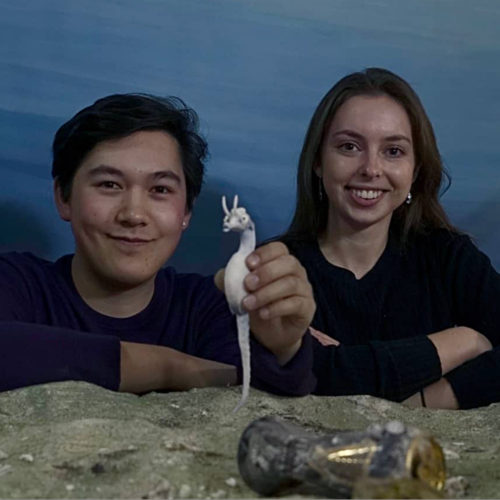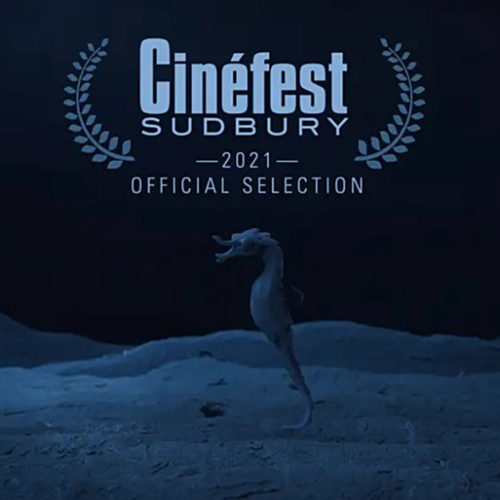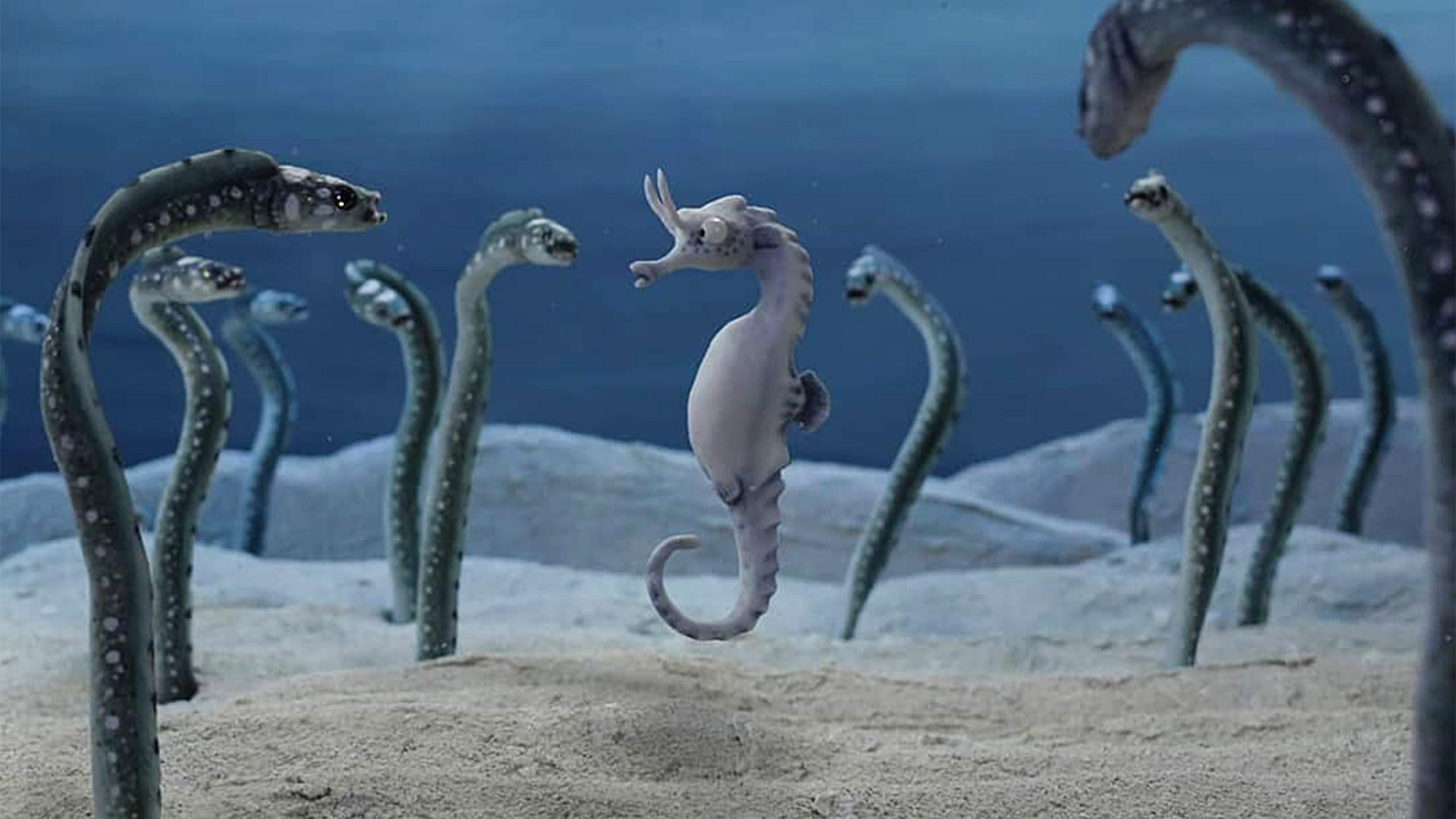By Natalie Vilkoff
In 2021, for his final project in Ryerson’s film studies program, Benjamin Fieschi-Rose created The Lost Seahorse—a short film that is being featured in the Vancouver Short Film Festival this month.
Using stop-motion animation and puppetry, the film follows the journey of a seahorse living in a coral reef. When a boat anchors itself over the reef, the impact sends the seahorse far from home. As it finds its way back, it meets various sea creatures and learns to adapt to new environments.
Adapting to a new environment is exactly what Fieschi-Rose had to do to create this film.
Fieschi-Rose said the pandemic gave him the opportunity to experiment with stop-motion and create something involving his passion for puppetry and animation, as pandemic restrictions made it hard for large casts and crews to work on live-action sets.
“It opened up the opportunity to tell a story in a different world,” he said.
The theme for the Vancouver Short Film Festival, kicking off virtually on Jan. 28 until Feb. 6, is “Mix it Up.” Although the films all tell unique stories, programming director Sasha Duncan said there has been a recurring theme of introspection this year.
“There is a sense of consideration for the self, for relationships and for where we are in the world,” said Duncan. “Art in a way always has that, but it has been amplified by the amount of time we’ve spent at home alone, or missing home and the sense of community we had before the pandemic.”
The Lost Seahorse is one of 11 student films featured in this year’s lineup, however, Duncan said she doubts people would be able to distinguish which projects are student-made.
“I’m daring people to guess which of this year’s films are student films and which aren’t, because there are some that are pretty amazing,” she said.
From script development to the final cut, the entire process to make his student film took Fieschi-Rose and his team almost a full year.
“It opened up the opportunity to tell a story in a different world“
The process of coming up with the story came easily. Fieschi-Rose was inspired by Raja Pat Islands in Indonesia and knew which characters he wanted his seahorse to meet. Once he and his co-writer Kirsten Brass, who also graduated from the Ryerson film program, came up with the main concept, the rest of the scenes and beats flowed smoothly.
“It was a very organic process of design and writing,” said Fieschi-Rose.

However, the underwater environment isn’t something often seen on-screen, and Fieschi-Rose thought creating it using stop-motion would be unique. But a large challenge faced by him and his team was getting the feel of an underwater environment on dry land.
He explained that the cinematographer and the visual effects team were finally able to achieve it using a combination of lighting and special effects.
When it came to puppet design, 30 puppets were handmade for the film. According to the Lost Sea Horse’s official Instagram, “It starts with a design, followed by an armature and a sculpt of the character. This sculpt is then molded, cast, patched and painted, until we finally have a finished puppet ready for animation.”
The sets used for the film were built entirely by hand and could be around 10-feet long, which presented an obstacle amidst pandemic safety measures. Trying to limit large gatherings, artists would work remotely. Out of the nearly 30-person team, only five people were constantly present in the studio.
Having grown up near the ocean in Vancouver, Fieschi-Rose said this project holds special significance to him. He wanted to have a positive impact on the environment because of his film’s ecological theme.
“We wanted to find a way not only to inspire change”
“We wanted to find a way not only to inspire change, but to set a precedent of what that change could look like,” Fieschi-Rose said.
To fundraise for the project, he partnered with The SEA People, (Science, Education, and Awareness) an organization that works to restore the coral reef in Raja Ampat, Indonesia.

A statement on the Instagram account for the film read that, “the [SEA People] team has even included some seahorse sculptures on the restoration site! These structures will serve as a foundation on which corals can grow and form a new and healthy reef.”
Fieschi-Rose donated 25 per cent of the raised funds, allowing a coral reef to be restored on the film’s behalf.
“It’s something that outside of the film will hopefully live on for many years to come, and provide a sanctuary for the real-life creatures in the film. It’s something I’m really proud that we managed to do,” Fieschi-Rose said. He added that his team continues to get updates on the reef as it grows back.
The Lost Seahorse has been featured at film festivals across eastern Canada and Fieschi-Rose plans to continue showing it, eventually aiming to premiere it internationally. He believes the film’s message will only become more relevant as time goes on.
“We want it to continue to inspire people to think about their impact on the environment, and about the smaller creatures that we don’t necessarily pay a lot of attention to.”










Leave a Reply